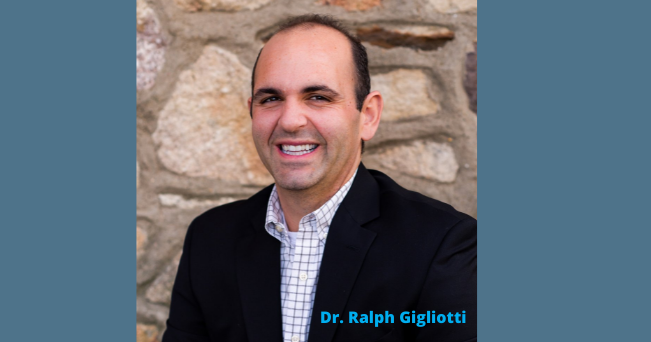2021 General Session: Crisis Leadership in a Time of Pandemic - Presented by Dr. Ralph Gigliotti

By: Tammy McCausland
Sunday afternoon’s general session address featured Dr. Ralph Gigliotti, Director of Rutgers University’s Center For Organizational Leadership. He spoke about how crisis has become a more negative and complex term.
He presented six key strategies for administrators:
- Focus on items within your immediate control and influence.
- Develop a clear understanding of your leadership goals.
- Design strategies for meaningfully engaging others in strategy, change, planning and crisis efforts.
- Prioritize wellness and well-being.
- Adopt people-centered approaches for navigating the “minefield” of the post-pandemic workplace.
- Remember your why.
He highlighted initial strengths of the pandemic (derived from a survey): existence of an emergency operations plan and ability to quickly set the plan into action; demonstration of ongoing communication from senior leadership; availability of technology and agile response to support rapid shifts to virtual work; and people-centered response from the senior leadership team.
Initial concerns (also derived from a survey) included the following: lack of communication from senior leadership; reluctance to embrace virtual learning and remote work policies in the past complicates the transitions required at this time; delayed response to the crisis by individuals with emergency management responsibilities; and managing the emotions of the community to help stakeholders cope with disruptive change.
The work of crisis leadership is complicated, Dr. Gigliotti said. There are task-centered challenges (e.g., administrative overhead, additional meetings, time required to complete tasks), relationship-centered challenges (e.g., communication with senior administration) and leadership-centered challenges.
Department administrators manage faculty, students, and staff. They need to engage in a multi-directional pivot to be able to respond to the needs of these various audiences. The pivot requires academic and administrative leaders to engage in thoughtful audience analysis and to adopt communication strategies that best meet one’s leadership goals, he said.
COVID-19 has made department administrators’ work more complex. The pandemic has underscored the importance of developing and strengthening mechanisms for two-way communication. Crisis leadership imperatives, Dr. Gigliotti noted, include triaging immediate concerns; advocating on behalf of colleagues, residents and students; providing frequent and timely updates to facilitate an institution’s crisis response; ensuring the safety and well-being of others; and helping to restore hope when others experience a breakdown in collective sensemaking.
Dr. Gigliotti referred to Gallup’s Q12 Employee Engagement Survey. He pointed out that emerging workplace expectations were shifting pre-pandemic, and it’s now a critical moment for strengths-based leadership. He noted that the most effective leaders do the following:
- They always invest in their strengths.
- They surround themselves with the right people and maximize their team. The best teams are well-rounded or know their areas of dominant strength.
- They understand their followers’ four basic needs: trust, compassion, stability, and hope.
How has the pandemic changed your leaership skills and knowledge?
We would love to hear your experiences.
Share your thoughts here, or login to SROA Connect and join the conversation. If you are not a member of SROA yet, learn more about joining the radiation oncology association serving the niche profession of Radiation Oncology Administrator.
Related Content: Gallup’s Q12 Employee Engagement Survey
Links:
SROA Blogs
Society For Radiation Oncology Administrators (SROA)
2021 SROA Annual Meeting
Rutgers University’s Center For Organizational Leadership
Comments